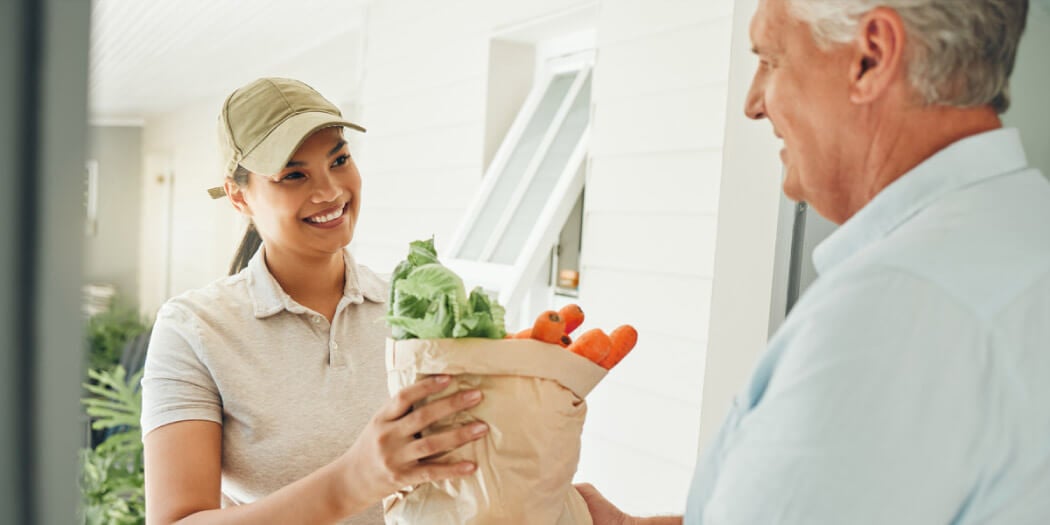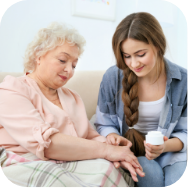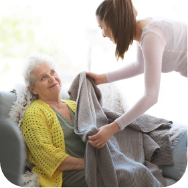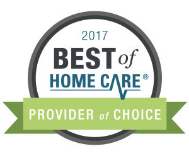The Lifesaving Importance of Seniors Stocking Medications, Food, and Supplies

As we age, our health needs often become more complex, and our vulnerability to unexpected events, from natural disasters to sudden illness, increases.
For seniors, maintaining a well-stocked supply of medications, food, and essential supplies is not just about convenience—it’s a critical component of safety and well-being. Proactive preparation can be the difference between a minor disruption and a major health crisis.
Furthermore, as companies undergo mergers and acquisitions and international trade agreements are being negotiated, there may be delays in everyday necessities for not just seniors, but for all.
Here's why stocking up is so vital for older adults:
1. Uninterrupted Medication Management
Many seniors rely on multiple prescriptions to manage chronic health conditions. Missing even a single dose of medication for issues like heart disease or diabetes can have serious, immediate consequences, including hospitalization. A backup supply of medication is a lifeline.
Emergency Situations: A severe weather event, power outage, including the preventive ones, or other disaster can make it impossible to get to a pharmacy. Having a one- to two-week supply of all prescription and over-the-counter medications ensures treatment continues without interruption.
Preventing Lapses: Unexpected situations, such as a licensed caregiver those we employ, like falling ill, a pharmacy being out of stock, or an insurance issue, can delay a refill. An emergency stash provides a buffer, eliminating panic and the dangerous side effects of skipping doses.
Travel and Mobility: For seniors who have difficulty leaving home or rely on others for transportation, having a stock of medicine on hand reduces the stress and logistical challenges of frequent pharmacy trips.
Tip: You can often build up a backup medication supply for free. Most insurance companies allow refills a few days before the 30-day mark. By picking up your prescription a few days early each month, you can gradually accumulate a week's or more worth of pills. Be sure to store all medications properly, away from extreme temperatures and in a secure location.
2. Ensuring Essential Nutrition
During an emergency, fresh food may not be available, and grocery stores, including bulk retailers like Sam’s Club and Costco, may be closed. For seniors with specific dietary needs, this can pose a significant health risk. A pantry stocked with non-perishable food is essential for maintaining health and energy.
Sustained Health: A well-stocked pantry allows seniors to maintain their regular eating schedule and nutritional intake, which is especially important for those with diabetes or other conditions that require consistent meals. Even if there's not an emergency, we recommend you and your Caregiver set up regular alarms to remind you to eat, especially if you're diabetic or pre-diabetic.
Morale and Comfort: Familiar, high-quality foods can provide a sense of security and comfort during a stressful time.
Specialized Foods: Seniors should include non-perishable items that meet their unique needs, such as canned dietetic foods, protein shakes like Ensure or Boost, or foods that are easy to prepare if a power outage occurs.
Tip: When stocking your pantry, choose a variety of items, including canned goods (tuna, chicken, vegetables, fruit), dried foods (pasta, rice, beans), nuts, granola bars, and water. Regularly check expiration dates and use the "first in, first out" method to keep supplies fresh.
3. Maintaining Hygiene and Sanitation
In a disaster, sanitation and personal hygiene can become difficult, increasing the risk of infection and illness. Having a supply of essential household and hygiene products is critical for maintaining a clean and healthy environment.
Basic Hygiene: A supply of hand sanitizer, moist towelettes, soap, toilet paper, and cleaning wipes is vital for personal sanitation and preventing the spread of germs, especially if a water source is contaminated or unavailable.
Essential Supplies: Don't forget items like adult diapers, washable bed pads, and other specific medical or personal hygiene products that a senior may need.
Household Items: Things like garbage bags, paper towels, and manual can openers can be easily overlooked but are crucial for day-to-day living during an emergency.
Beyond the Basics: Creating a Comprehensive Plan
Stocking up is a key part of a larger emergency preparedness plan. Seniors and their caregivers should also:
Create a Go-Bag: Keep a portable kit ready with a few days' worth of medications, important documents (medication list, doctor contacts, insurance information), cash, and a change of clothes.
Build a Support Network: Identify a few trusted family members, friends, or neighbors who can check in and provide assistance during an emergency.
Stay Informed: Sign up for local emergency alerts to be notified of severe weather or other community-wide events.
By taking these steps, seniors can empower themselves to navigate unexpected challenges with confidence, ensuring their health and safety remain the top priority.

























